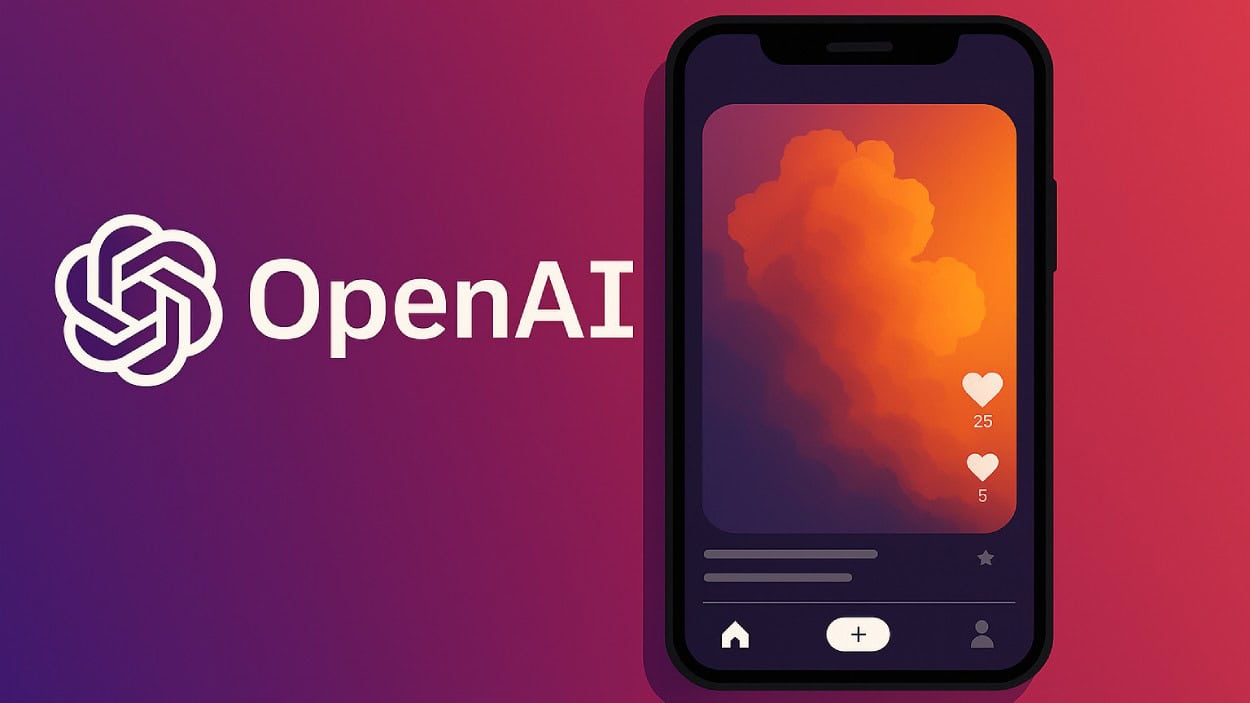OpenAI is preparing to launch a new standalone social media app for its AI-powered video generator Sora 2, designed to let users create and share short AI-generated clips.
Quick Summary – TLDR:
- OpenAI developing a social video app featuring AI-generated clips up to 10 seconds long
- App designed to look and feel similar to TikTok and Instagram Reels
- Copyrighted material included by default unless rights holders opt out
- Launch comes as Meta and Google also push AI video tools
What Happened?
OpenAI is reportedly preparing to roll out a new short-form social media app powered by Sora 2, its advanced AI video generator. The app will allow users to create clips up to 10 seconds long and share them in a vertical scrolling feed similar to TikTok and Instagram Reels. According to reports from Wired and the Wall Street Journal, the product is already being tested internally and has received positive feedback from employees.
Sora2 is coming, the tl;dr here:
— Chubby♨️ (@kimmonismus) September 29, 2025
OpenAI is preparing to launch a standalone social app powered by its new video generation model Sora 2.
The platform mimics TikTok’s swipe-to-scroll format but features only AI-generated clips, up to 10 seconds long, with options to remix,… https://t.co/SV21FPA5Eb pic.twitter.com/U77ylXSpss
A TikTok-Style AI Platform
The app will feature a vertical feed with swipe-to-scroll navigation, where users can like, comment, and tag each other in posts. Instead of uploading photos or videos, users can verify their identity and likeness to be included in AI-generated content. Notifications will be sent when a verified likeness is used by others, giving users more control over their digital presence.
This design makes the app fundamentally different from TikTok or Instagram Reels, where content comes from real footage. With Sora 2, everything shown is created through AI.
Copyright Questions and Industry Pushback
One of the most controversial elements of the launch is OpenAI’s decision to include copyrighted material by default in videos generated by Sora. Entertainment studios and rights holders will have to explicitly opt out if they do not want their work used. According to the Wall Street Journal, OpenAI has already begun informing studios and talent agencies about the process. However, the company confirmed that recognizable public figures will not be generated without permission.
The move comes as the creative industry grows increasingly concerned about how AI tools use copyrighted works. Studios have been particularly cautious, fearing that AI could flood the market with content trained on their intellectual property without fair licensing agreements.
Competition From Tech Giants
OpenAI’s entry into AI-driven video apps comes as rivals are making similar moves:
- Meta recently launched Vibes, a feed of AI-generated videos in its Meta AI app, which can be shared across Facebook and Instagram.
- Google announced plans to integrate its Veo 3 AI video generator into YouTube.
- Stability AI continues to push its Stable Video Diffusion technology.
By launching Sora 2 as a standalone app, OpenAI signals that it wants to compete head-on in the short-video space, not just as a backend tool provider.
Parental Controls and Safety
While OpenAI introduced new parental controls for ChatGPT, it is still unclear what safety measures will be built into Sora 2. The ability to generate content using a person’s likeness has raised questions about consent and misuse. How OpenAI addresses these concerns will likely influence public reception and regulatory scrutiny.
SQ Magazine Takeaway
I think this move by OpenAI is bold and a little risky. On one hand, the idea of a TikTok-style app where every single video is AI-generated sounds fascinating and futuristic. On the other hand, forcing copyright holders to opt out instead of giving them the chance to opt in is going to spark backlash. The creative industry is already wary of AI, and this approach could deepen mistrust. That said, if OpenAI nails the user experience and handles safety responsibly, Sora 2 could end up being one of the most disruptive apps in years. Personally, I see this as OpenAI’s clearest attempt yet to compete directly with Meta and Google on consumer apps.


































































